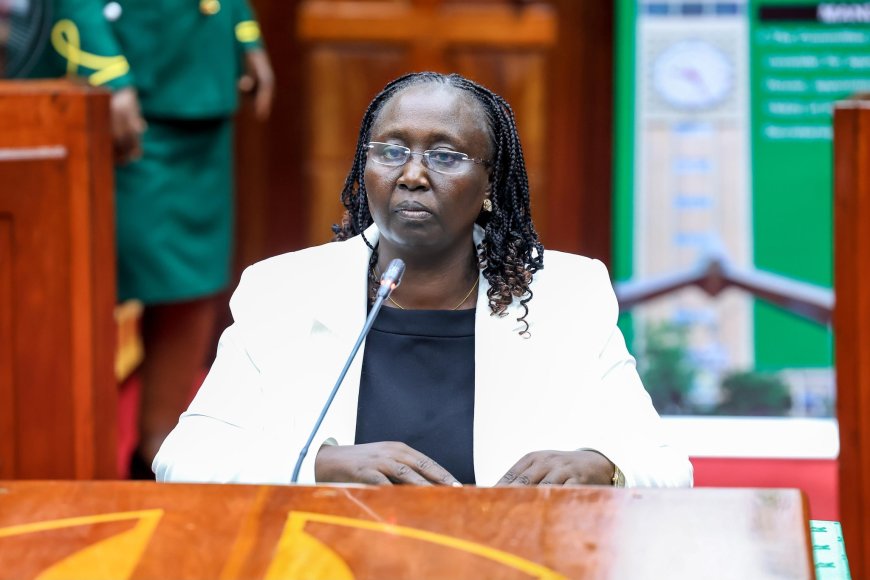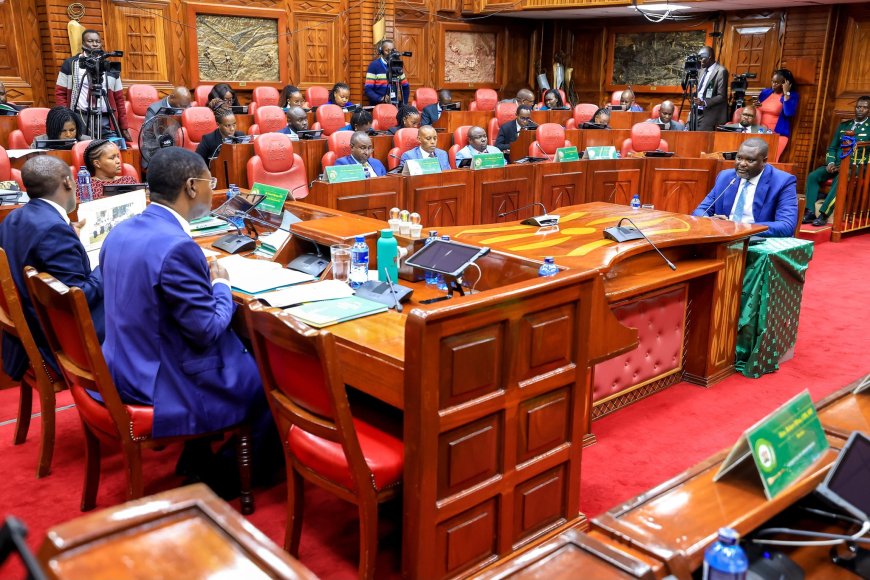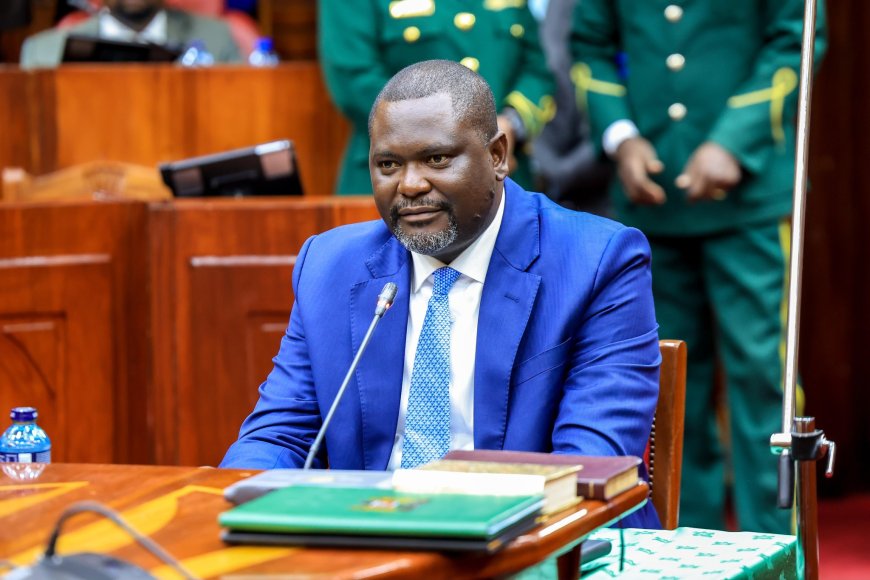Hannah Wendot Cleared For Appointment As CS Despite Controversial Femicide Remarks
The approval of Wendot is likely to spark debate, given that it came hours after Amnesty International Kenya slammed her over her remarks that appeared to hold victims of femicide responsible for their actions leading to the vice.

The National Assembly has approved the appointments of Hannah Wendot Cheptumo and Geoffrey Ruku as Cabinet Secretaries for Gender and Public Service, respectively. This is despite the backlash Wendot attracted over remarks on femicide that were deemed insensitive.
Their approval means that the two will be formally appointed by President William Ruto and take an oath of office alongside the approved Principal Secretaries anytime from now, after which they will officially assume their respective roles.
“Having considered the suitability of the nominees for appointment during the approval hearings pursuant to Article 152(2) of the Constitution and sections 3 and 8 of the Public Appointments (Parliamentary Approval) Act, and Standing Order 204(4) of the National Assembly Standing Orders, the Committee recommends that the House approves—(1) Hon. Geoffrey K. Kiringa Ruku for appointment as Cabinet Secretary for Public Service, Human Capital Development and Special Programmes; and (2) Ms. Hanna Wendot Cheptumo, for appointment as Cabinet Secretary for Gender, Culture, The Arts and Heritage,” the report read.

National Assembly Committee on Appointments during the vetting of Public Service Cabinet Secretary nominee Geoffrey Ruku on Monday, April 14, 2025. /PARLIAMENT KENYA
President Ruto will formally appoint the approved nominees by issuing a gazette notice prior to their swearing-in, expected to be held at State House in a publicised event.
The approval of Wendot is likely to spark debate, given that it came hours after Amnesty International Kenya slammed her over her remarks that appeared to hold victims of femicide responsible for their actions leading to the vice.
"Suggesting that girls need economic power to avoid femicide shifts the blame from perpetrators to the victims. Femicide is a crime and should be treated as such," Amnesty stated in a video dubbed How Not to Govern 101.
"Article 26 of Kenya's Constitution guarantees the right to life for every Kenyan. Article 27 emphasises that no one should be discriminated against. Blaming victims for violence disregards these rights."
During her vetting before the Committee on Appointments on Monday, April 14, Cheptumo claimed that femicide was a result of women pursuing relationships driven by a desire for money, adding that if their incomes were better off, they would be independent.
She would go on to say that even those educated women are attacked or killed in their pursuit of money, adding that one of her main action points, should the Committee approve her for appointment by President Ruto, would be to improve the financial freedom of women in the country.
"Femicide is the intentional killing of women and girls, and it is brought about by dependency. If girls were able to have economic power, they would not depend on either gender," Cheptumo, a widow of the late Baringo Senator William Cheptumo, stated, adding, "If a woman is educated, chances are that she will avoid some of these challenges in society."
However, this remark sparked pushback from some panellists, including committee chair Moses Wetangula, who pointed out that many of the girls killed in Airbnbs were university students—and therefore, clearly not uneducated. He responded, “The girls who have been killed in recent days are educated", to which Cheptumo countered, "They are educated, but those are looking for money. You know a girl has many needs."
Despite the remarks, she reaffirmed her dedication to fighting Gender-Based Violence (GBV) and championing Kenya’s cultural heritage. Addressing concerns over harmful traditional practices such as Female Genital Mutilation (FGM) and child marriages, Cheptumo pledged to collaborate with community and religious leaders to tackle these deeply rooted issues.
She also suggested setting up gender desks at police stations to support GBV survivors, but recommended that these desks be moved to hospitals instead, creating a more secure and empathetic space for survivors to receive medical care and psychosocial support.
“I want to see more programs for survivors and ensure that GBV education is included in school curricula to promote respect and equality from a young age,” she affirmed.
Ruku, on the other hand, announced plans to introduce a system that will track the amount of time government workers spend at their jobs, explaining that the first step would be to develop a digital platform connecting all government offices, complete with timesheets that require employees to log in upon arrival at work. This system will also monitor employee performance and output to ensure they are effectively fulfilling their responsibilities.
"I will come up with a system in place to link all the government institutions. The time sheets are an extremely important component. Once you go to work, we are supposed to know what time you reported to work, your output that particular day and what time you left the work station," he stated.







